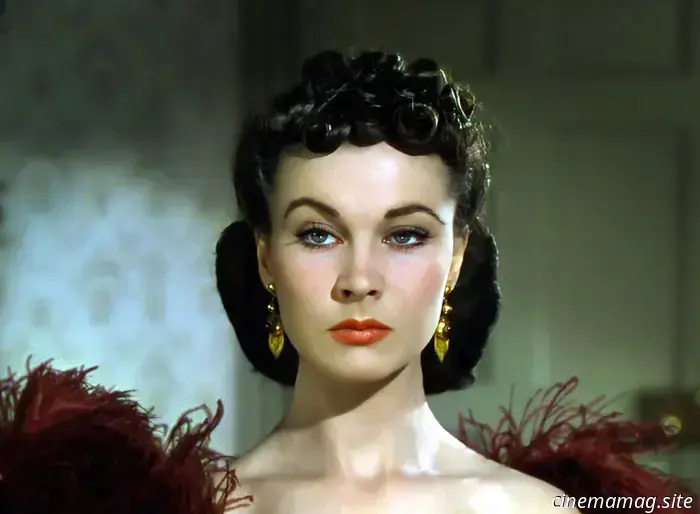
7 Oscar-Winning Films That Wouldn't Get Made Today
Here are seven Oscar-winning Best Picture films that likely wouldn’t be produced in today’s environment.
And if you believe that Hollywood will be less cautious in response to Donald Trump’s potential re-election, you probably didn’t experience the previous Trump Administration.
But First, Some Clarifications
Orion – Credit: C/O
We’re not here to criticize “cancel culture” or “wokeism,” nor to judge the past by today's standards. We view films as reflections of their time, and we enjoy exploring how narratives resonate differently across various periods.
Many Best Picture winners would not be made today due to their directors becoming viewed as controversial, and we are not including those titles. We also won’t consider exceptional films like Casablanca, which may have some questionable elements that could easily be overlooked without undermining their overall message.
This list focuses on films with fundamental plot points so problematic that cautious studio executives would hesitate to make them. Such elements are significant enough that removing them would lead to an entirely different film.
Now, here are seven films that, although they won Best Picture Oscars, would unlikely be created in today’s Hollywood.
Gigi (1958)
MGM – Credit: C/O
Contemporary society, acutely aware of the risks posed by groomers, would swiftly dismiss the premise of Gigi, a story about a 16-year-old girl being groomed to become a courtesan. Its main song, “Thank Heaven for Little Girls,” seems very unlikely to receive approval from a major studio in today’s climate.
While Gigi is set at the turn of the 20th century, a time when such behavior wasn’t deemed outrageous, and was released in the 1950s, when teenage weddings were more commonplace, it simply wouldn’t fly today.
Despite winning Best Picture and eight additional Oscars – historically holding the record for the highest clean sweep of nominations – Gigi is undoubtedly at the forefront of films that today’s Hollywood executives would never produce.
Crash (2004)
Lions Gate Films – Credit: C/O
Often, movies that age poorly are those that congratulate themselves for seemingly relevant or progressive themes that quickly become overly simplistic, particularly as societal norms evolve. Chief among the eye-rolling examples are films conveying a “racism is bad” message, which, of course, is universally acknowledged. Audiences do not wish to spend two hours witnessing Hollywood actors imparting lessons that everyone should already know.
Modern critics are particularly harsh on Crash — both the AV Club and Film Comment have deemed it the worst Best Picture winner, while IndieWire ranked it at the bottom amongst this century’s winners.
More on Crash
Lions Gate Films – Credit: C/O
What fuels the modern critics' disdain for Crash? It’s tough to generalize, but a major issue appears to be its clumsy redemption arc in which a white police officer (Matt Dillon) saves the life of a Black driver (Thandiwe Newton) whom he previously assaulted. That’s just one glaring flaw in a film riddled with absurd plot twists.
Contemporary executives are astute enough to recognize that critics — both professional and amateur on social media — would be quick to attack a film like Crash, jeopardizing its potential for any awards recognition.
Another Note
Leslie Caron in Gigi. MGM – Credit: C/O
Technically, any of these films could be made today by amateurs with an iPhone. However, they would lack the same impact without the backing of a major studio.
Now, back to our list.
Gone With the Wind (1939)
Loew’s Inc. – Credit: C/O
Even if one can overlook the broad, stereotypical representation of Black characters (which is quite difficult, as parts of this film resemble a low-quality cartoon), Gone With the Wind expects us to invest nearly four hours into the misfortunes of Scarlett O’Hara, a woman who treats others as property.
It’s nearly impossible to portray her in a sympathetic light for modern viewers. Yes, she faces consequences in the end.
But those are four long hours to be with such an unsavory character.
One Flew Over the Cuckoo’s Nest (1975)
United Artists – Credit: C/O
Many aspects of One Flew Over the Cuckoo’s Nest have aged well, particularly its anti-authoritarian message.
Yet one particular element would not be acceptable in today’s #MeToo context: the protagonist, Randle McMurphy (Jack Nicholson), is a statutory rapist of a 15-year-old girl. He feigns insanity hoping it will lead to easier incarceration in a mental facility.
When considering McMurphy’s extremely poor judgment regarding sexual boundaries, the fact that the film’s antagonist is a strong woman — Nurse Ratched — takes on an unsettling connotation.
It’s worth noting that when Hollywood revisited this storyline a few years ago with the Netflix series Ratched, the character was depicted as the protagonist













Other articles
 Vampirella #1 - Preview of the Comic Book
Dynamite Entertainment will debut its latest Vampirella series this Wednesday, and you can take a look at the first issue with the official preview below. The duo of Christopher Priest and Ergun Gunduz is back as "The Long Night" starts! Vampirella's baby son, taken by her wicked twin Draculina, has at last been returned to [...]
Vampirella #1 - Preview of the Comic Book
Dynamite Entertainment will debut its latest Vampirella series this Wednesday, and you can take a look at the first issue with the official preview below. The duo of Christopher Priest and Ergun Gunduz is back as "The Long Night" starts! Vampirella's baby son, taken by her wicked twin Draculina, has at last been returned to [...]
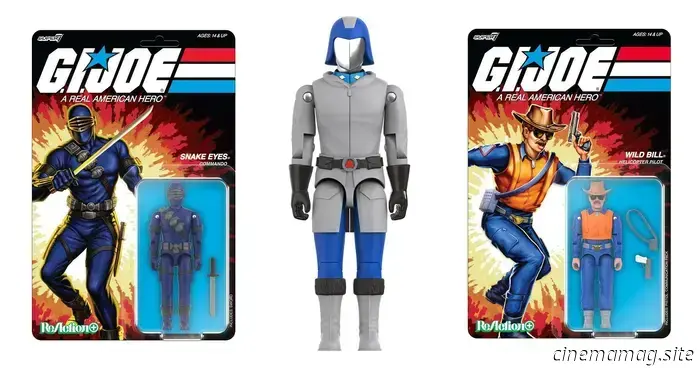 Reveals for Wave 3 of Super 7's G.I. Joe Reaction+ feature Arctic Cobra Commander and Cartoon Snake Eyes.
Super 7 has officially announced the third wave of G.I. Joe Reaction+ figures, which includes the previously announced Zartan Cold Slither figure, along with Snake Eyes in his iconic G.I. Joe: A Real American Hero animated outfit, Cobra Commander in his winter attire, and Wild Bill. Take a look at the official promotional images here… SEE ALSO: […]
Reveals for Wave 3 of Super 7's G.I. Joe Reaction+ feature Arctic Cobra Commander and Cartoon Snake Eyes.
Super 7 has officially announced the third wave of G.I. Joe Reaction+ figures, which includes the previously announced Zartan Cold Slither figure, along with Snake Eyes in his iconic G.I. Joe: A Real American Hero animated outfit, Cobra Commander in his winter attire, and Wild Bill. Take a look at the official promotional images here… SEE ALSO: […]
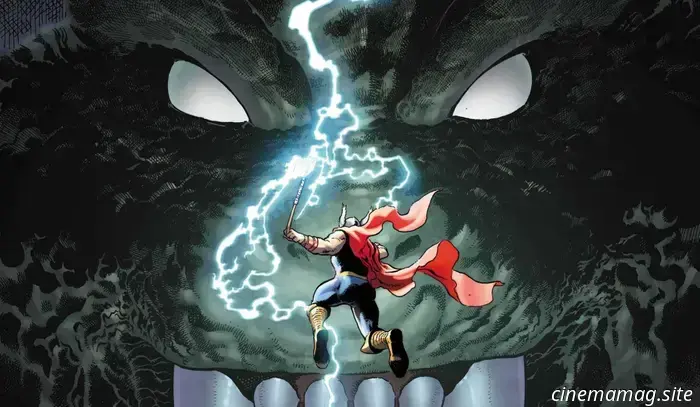 The King of Monsters will take on the God of Thunder in Godzilla vs. Thor.
Following his journey through the Marvel Universe, clashing with the Fantastic Four, Hulk, Spider-Man, X-Men, and The Avengers, Toho's King of the Monsters will wrap up his Marvel onslaught in July with the release of a sixth and final crossover one-shot, Godzilla vs. Thor #1, created by writer Jason Aaron and artist Aaron Kuder. "There are nearly as many toy [...]
The King of Monsters will take on the God of Thunder in Godzilla vs. Thor.
Following his journey through the Marvel Universe, clashing with the Fantastic Four, Hulk, Spider-Man, X-Men, and The Avengers, Toho's King of the Monsters will wrap up his Marvel onslaught in July with the release of a sixth and final crossover one-shot, Godzilla vs. Thor #1, created by writer Jason Aaron and artist Aaron Kuder. "There are nearly as many toy [...]
 13 Classic Films That Remain Enjoyable to View
We've all seen timeless classic films that are undeniably excellent, yet may not be particularly enjoyable. These old films have no trouble enduring through the years.
13 Classic Films That Remain Enjoyable to View
We've all seen timeless classic films that are undeniably excellent, yet may not be particularly enjoyable. These old films have no trouble enduring through the years.
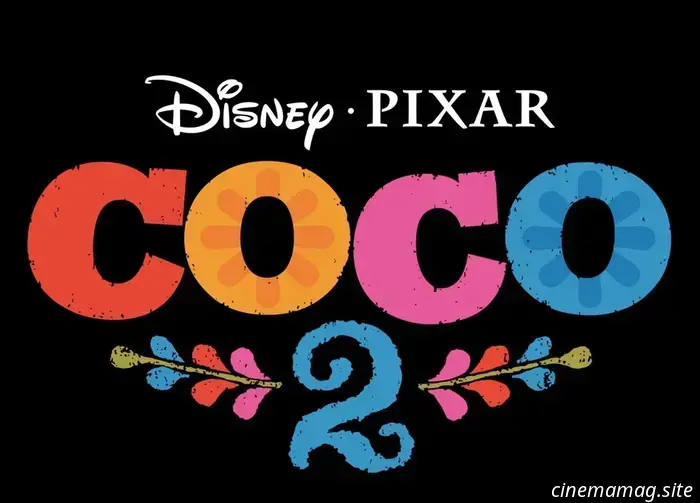 Disney-Pixar has officially revealed the sequel, Coco 2.
Bob Iger, the head of The Walt Disney Company, has revealed that work is in progress on Coco 2, a sequel to the Oscar-winning 2017 movie from Disney-Pixar. The original film's creative team, including director Lee Unkrich (Toy Story 3), co-director Adrian Molina, and producer Mark Nielsen (Toy Story 4), will come together once again for this project. “Although the film is just […]
Disney-Pixar has officially revealed the sequel, Coco 2.
Bob Iger, the head of The Walt Disney Company, has revealed that work is in progress on Coco 2, a sequel to the Oscar-winning 2017 movie from Disney-Pixar. The original film's creative team, including director Lee Unkrich (Toy Story 3), co-director Adrian Molina, and producer Mark Nielsen (Toy Story 4), will come together once again for this project. “Although the film is just […]
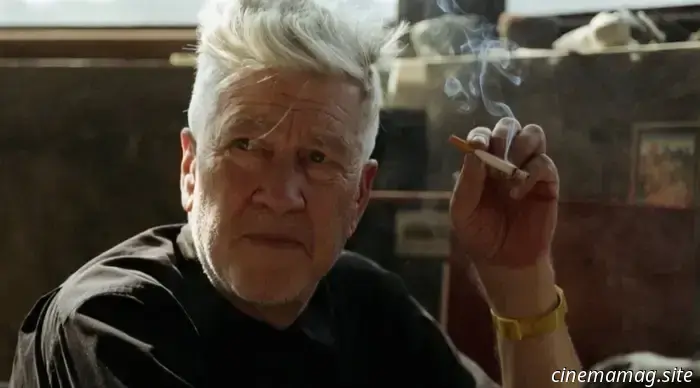 David Lynch Discussed His New Project with Naomi Watts and Laura Dern Last Fall: “He Was Definitely Not Finished”
It has been a little over two months since we lost one of the remarkable artists of our era. In the weeks after David Lynch's unexpected passing, many have sought comfort in revisiting his creations, as theaters organize repertory screenings and his collaborators share their memories. Following numerous speculations, we now have confirmation from one
David Lynch Discussed His New Project with Naomi Watts and Laura Dern Last Fall: “He Was Definitely Not Finished”
It has been a little over two months since we lost one of the remarkable artists of our era. In the weeks after David Lynch's unexpected passing, many have sought comfort in revisiting his creations, as theaters organize repertory screenings and his collaborators share their memories. Following numerous speculations, we now have confirmation from one
7 Oscar-Winning Films That Wouldn't Get Made Today
Here are seven films that would likely not be produced in today's Hollywood, even though they have won the Best Picture Oscar.
